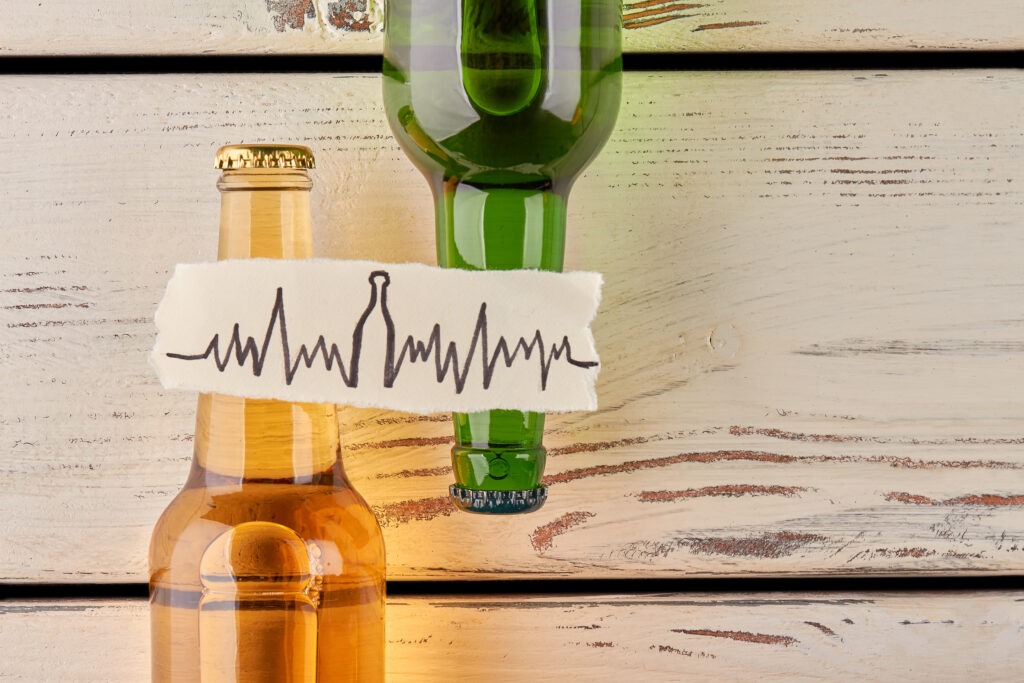
April marks Alcohol Awareness Month, a critical time to confront the stark reality of excessive alcohol consumption. With an estimated 385 American lives lost daily to alcohol-related causes, this month serves as a poignant reminder of the urgent need to address the widespread impact of alcohol misuse. Through education, personal stories, and community involvement, we can shed light on the importance of responsible drinking, support those on the path to recovery, and promote healthier choices that can prevent the devastating consequences of alcohol addiction.

Alcohol Awareness Month, observed annually starting April 1st, serves as a vital public health initiative aimed at highlighting the risks associated with excessive alcohol consumption and promoting responsible drinking habits. The primary goal is to educate the public, particularly young people, on the dangers of alcohol misuse and to foster healthier communities.
During this month, individuals are urged to participate in events and activities that support sobriety and responsible alcohol consumption. The emphasis is on prevention, education, and community involvement to combat the normalization of excessive drinking.
Identifying the signs of excessive drinking is a pivotal step in addressing alcohol misuse. Recognizing these signs early can lead to timely intervention and support. Common indicators include a strong compulsion to drink, difficulty in controlling consumption, and neglecting responsibilities. These behaviors often escalate as the individual progresses through the stages of alcoholism, from early abuse to a severe, chronic state.
Increased tolerance and withdrawal symptoms are particularly telling signs. They signal the body’s growing dependence on alcohol, which can culminate in significant health and social consequences if left unchecked.
Recognizing the problem is the first step towards recovery. It involves a level of self-awareness that can be difficult to achieve without support. Here are some signs that may indicate a problem with alcohol:
It’s essential to understand that symptoms can vary from person to person. If multiple signs are present, it may be time to seek professional help.
Education plays a pivotal role in preventing alcohol misuse, especially among young individuals. Knowledge is a powerful tool that can empower youth to make informed decisions about alcohol consumption. By understanding the risks and consequences associated with excessive drinking, adolescents can learn to navigate social pressures and make healthier choices.
Education initiatives can include programs that focus on the dangers of underage drinking, the legal implications of alcohol misuse, and the long-term health effects. These programs are often integrated into school curricula and supported by community efforts to reinforce the message.
Brief interventions have been shown to be effective in reducing alcohol intake among youth. These interventions are concise and tailored to the individual’s needs, aiming to change behaviors and reduce the risk of harm. The table below summarizes the impact of educational interventions on alcohol use in adolescents:
| Intervention Type | Outcome |
| Awareness Programs | Increased knowledge of risks |
| Communication Workshops | Improved family dialogue |
| Motivational Sessions | Increased desire to change behavior |
| Brief Interventions | Decreased alcohol consumption |
By integrating education into a comprehensive strategy to combat alcohol misuse, we can create a foundation for long-term change and healthier communities.

Chronic alcohol consumption poses severe risks to an individual’s health, leading to a spectrum of medical conditions that can be both debilitating and life-threatening. The burden of these conditions not only affects the individual but also places a significant strain on healthcare systems.
Excessive alcohol use can lead to increased risk of health problems such as injuries, violence, liver diseases, and cancer. The CDC Alcohol Program works to strengthen the scientific foundation for preventing excessive alcohol use.
Furthermore, alcohol addiction can lead to increased tolerance, making it difficult for individuals to control their consumption. Withdrawal symptoms can be severe, and the neglect of responsibilities can have far-reaching consequences on personal and professional life. The impact on mental health is also significant, with a strong link between excessive drinking and conditions like depression and anxiety.
The economic repercussions of excessive drinking are profound, with a staggering cost to the U.S. economy. In 2010, the expenditure related to excessive alcohol use reached $249 billion, averaging $2.05 per drink. A significant portion of these costs, primarily from binge drinking episodes, underscores the urgency of addressing alcohol misuse.
Beyond the direct costs, healthcare systems bear a heavy load. Alcohol-related conditions lead to a surge in emergency room visits, long-term treatments, and a higher demand for mental health services. This strain on resources affects not only the quality of care for individuals with alcohol-related issues but also for those with unrelated medical needs.
The societal impact of excessive drinking extends beyond economics, influencing social dynamics and community health. It’s a multifaceted issue that requires a comprehensive approach to mitigate its effects.
To illustrate the burden on healthcare systems, consider the following:
The journey through alcohol addiction is deeply personal, yet it resonates with a universal truth: recovery is possible. Personal accounts of struggle and triumph shed light on the harsh realities of addiction and the profound strength of the human spirit.
Overcoming alcohol addiction is not a solitary endeavor. It is a collective journey that requires understanding, support, and a commitment to change.

Embarking on the journey to sobriety is a commendable decision that requires a steadfast commitment to change. It begins with setting realistic goals, which are the stepping stones towards a life free from alcohol dependence.
By breaking down the recovery process into manageable steps, you can build momentum and celebrate each victory. > It’s important to remember that overcoming alcohol addiction is a process that takes time and effort. Start by setting small, achievable goals that align with your overall objective of staying sober.
To reinforce your commitment, write down your reasons for wanting to stop drinking. This personal inventory will serve as a powerful reminder of your motivation during challenging moments. Sharing your goals with a trusted friend or family member can also provide an additional layer of support and accountability.
Building a robust support system is a cornerstone of successful recovery from alcohol addiction. Support groups like Alcoholics Anonymous (AA) and SMART Recovery play a pivotal role by providing a sense of community and understanding. These groups, often facilitated by those who have walked the path of recovery themselves, offer a platform for sharing experiences and fostering mutual support.
In addition to group meetings, therapy sessions are integral to the recovery process. They offer a structured environment where individuals can work through the psychological aspects of addiction. Therapy often involves exploring and resolving ambivalence towards alcohol, setting goals, and developing strategies for change.
Having a support system provides emotional support, encouragement, and accountability. It’s a source of resources, information, and guidance from those who have successfully navigated the journey to sobriety.
Creating a support system can also involve the support of loved ones. It’s important to enlist the help of understanding friends and family who are committed to aiding the recovery process.
Overcoming alcohol addiction often requires a holistic approach, where implementing lifestyle changes plays a pivotal role. These changes are not just about removing alcohol from one’s life, but also about creating a new, supportive environment that promotes sobriety.
By making these adjustments to daily routines and habits, individuals can foster an environment conducive to recovery and reduce the likelihood of relapse.
Remember, the journey to sobriety is unique for each person, and it’s important to set realistic goals and celebrate each milestone. Breaking down the recovery process into manageable steps can help build momentum and maintain focus on the path to a healthier lifestyle.

During Alcohol Awareness Month, community initiatives play a crucial role in spreading the message about the dangers of excessive drinking. Organizations are encouraged to host presentations or educational events to foster discussions on underage drinking prevention. These events can be tailored to various community settings, such as schools, workplaces, or local gatherings.
The Substance Abuse and Mental Health Services Administration (SAMHSA) provides a wealth of resources to support these efforts. For instance, the ‘Small Talks’ campaign emphasizes the importance of engaging in meaningful conversations with youth about alcohol. Educational materials, such as brochures, discussion starter videos, and a customizable PowerPoint presentation, are readily available to assist community leaders and educators.
By elevating Community Based Organizations (ECBOs) and utilizing campaigns like ‘They Hear You,’ communities can create a supportive environment where the message of moderation and prevention resonates.
To illustrate the variety of resources and initiatives available, here is a list of tools and programs that can be leveraged:
These resources not only aid in raising awareness but also in building a collective effort to reduce the impact of alcohol misuse.
Parents and educators play a pivotal role in shaping young minds and their approach to alcohol. Engaging in meaningful conversations about the risks and consequences of excessive drinking is crucial. Here are some tips to guide these discussions:
It’s not just about talking; it’s about listening. Create a safe space where kids feel comfortable sharing their thoughts and experiences.
Remember, the goal is not to instill fear but to foster understanding and responsible decision-making. By starting these conversations early and revisiting them often, parents and educators can help prevent the misuse of alcohol among the younger generation.
In the digital age, social media platforms have become powerful tools for spreading awareness and promoting positive behaviors. During Alcohol Awareness Month, leveraging these platforms can amplify the message of responsible drinking. Creating engaging content that resonates with your audience is key to influencing behavior.
By consistently posting content that encourages responsible decision-making, we can collectively foster a culture of mindfulness around alcohol consumption. It’s not just about reducing the frequency of drinking, but also about making informed choices when we do choose to drink.

The foundation of preventing underage drinking begins at home and in the community, where adults can model responsible behavior. Children and adolescents are highly influenced by the actions of adults, especially parents and educators, in their understanding of alcohol consumption.
It’s not just about talking the talk, but also walking the walk. Being a positive role model involves consistent actions that align with the messages we convey to the younger generation.
By setting a positive example and providing the right tools for decision-making, we can significantly reduce the likelihood of underage drinking and its associated risks.
Limiting access to alcohol in social environments is a proactive step towards encouraging responsible drinking habits. By reducing the availability of alcoholic beverages, the temptation to overindulge can be significantly diminished. Social hosts can play a pivotal role by offering a variety of non-alcoholic options to their guests, which not only caters to those who choose not to drink but also supports individuals who are trying to maintain sobriety.
When planning events, consider the preferences of all attendees and ensure that alcohol-free alternatives are not only available but also appealing and accessible. This inclusive approach can help normalize the choice of not drinking, making it easier for everyone to enjoy the social occasion without pressure.
Here are some practical tips for reducing alcohol availability:
In the spirit of Alcohol Awareness Month, it’s crucial to encourage healthy alternatives to drinking. These alternatives not only provide a means to avoid alcohol but also contribute to overall well-being. For instance, engaging in regular exercise or adopting hobbies can replace the time and energy often consumed by drinking.
By promoting and participating in alcohol-free activities, individuals can foster a culture of responsible behavior and offer support to those seeking to reduce their alcohol intake.
It’s also beneficial to model responsible behavior, especially in settings where children are present, to instill healthy habits from a young age. Alternating with non-alcoholic drinks during social events and ensuring safe transportation are practical steps that can make a significant difference.
As Alcohol Awareness Month draws to a close, we are reminded of the sobering realities and the devastating impact that excessive drinking can have on individuals, families, and communities. The strategies and insights shared throughout this month serve as a beacon of hope and a call to action. From embracing sobriety, understanding the risks, and seeking paths to recovery, to involving ourselves in community efforts and promoting responsible decision-making, each of us has the power to make a difference. Let us carry the spirit of this month forward, continuing to spread awareness, support those in need, and foster environments that discourage excessive alcohol use. Together, we can contribute to a healthier society where the consequences of excessive drinking are not a daily tragedy but a preventable challenge we collectively overcome.
Alcohol Awareness Month is observed annually in April to raise public awareness about the impact of alcohol abuse and encourage people to make healthy and safe choices when it comes to alcohol consumption. It’s important because it brings attention to the risks of excessive drinking and promotes education on alcohol-related issues.
Signs of excessive drinking include increased tolerance to alcohol, difficulty controlling consumption, experiencing withdrawal symptoms when not drinking, neglecting responsibilities, and continuing to drink despite negative consequences to health, relationships, or work.
Excessive alcohol use can lead to chronic health conditions such as liver disease, cognitive impairment, and mental health disorders. It also imposes a significant burden on healthcare systems and contributes to societal issues like strained relationships, financial difficulties, and legal problems.
Realistic goals for recovery might include setting a limit of zero alcohol consumption for the first week, attending support group meetings or therapy sessions regularly, and replacing drinking habits with healthy activities like exercise or hobbies.
You can get involved by participating in community initiatives, educational campaigns, engaging in open conversations with children and peers about responsible drinking, and using social media to promote messages of moderation and sobriety.
Parents can help prevent underage drinking by modeling responsible behavior, reducing alcohol availability at home, having open conversations about the negative effects of alcohol, and encouraging healthy alternatives to drinking, such as hobbies or sports.
